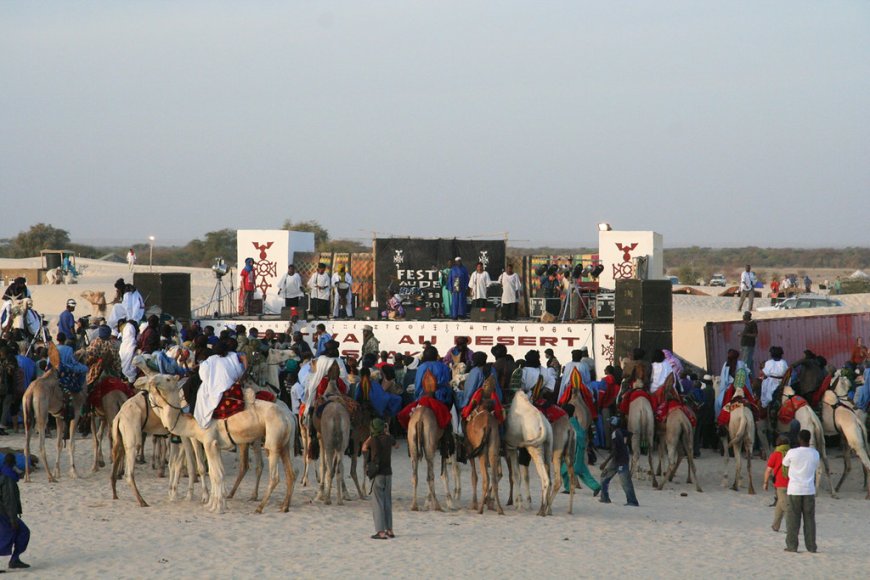Mali’s Cultural Festivals Shine Amid Political Shifts: A Testament to Resilience
Discover how Mali’s cultural festivals continue to thrive despite political challenges, preserving heritage and uniting communities.

Mali, a West African nation rich in history and tradition, has long been a cultural powerhouse. Its music, dance, and festivals are deeply woven into the fabric of its society. Despite ongoing political changes and instability, Mali's cultural festivals continue to thrive, offering a beacon of hope and unity. These events not only preserve the nation’s heritage but also serve as a platform for dialogue, artistic expression, and national pride.
Mali’s Vibrant Cultural Landscape
Mali boasts a diverse cultural heritage shaped by various ethnic groups, including the Bambara, Tuareg, Dogon, and Songhai. Festivals in Mali celebrate this diversity, showcasing everything from ancient storytelling traditions to contemporary music and dance performances. Some of the most famous festivals include:
- Festival au Désert – Originally held near Timbuktu, this festival was a global attraction for desert blues music. Although security concerns have led to its relocation, its spirit remains strong.
- Festival sur le Niger – Held in Ségou, this festival highlights traditional and modern Malian music, art, and theater, attracting thousands of visitors annually.
- Dogon Mask Festival – A rare and sacred event, this festival showcases the breathtaking masked dances of the Dogon people, deeply rooted in their spiritual beliefs.
- National Biennale of Mali – A celebration of Mali’s artistic excellence, this event fosters unity by bringing together performers from different regions.
Political Changes and Their Impact
Mali has experienced significant political upheavals in recent years, including coups, conflicts, and governance shifts. These changes have affected many aspects of daily life, including the organization of cultural events. However, despite challenges such as security concerns, funding shortages, and government restructuring, Mali’s festivals continue to push forward.
Local organizers, artists, and cultural leaders are determined to keep these traditions alive, viewing them as crucial for national identity. Even in times of crisis, these events serve as peaceful gatherings that encourage dialogue, promote tourism, and strengthen social cohesion.
Resilience Through Culture
One of the most remarkable aspects of Mali’s festivals is their resilience. Artists and organizers have adapted by hosting virtual performances, relocating events to safer locations, and collaborating with international organizations for support. This adaptability ensures that Mali’s rich traditions are not lost, even in uncertain times.
For many Malians, these festivals are more than just entertainment—they are a symbol of endurance and cultural pride. They provide a sense of normalcy, reminding the world that Mali’s artistic spirit remains unbroken.
The Future of Mali’s Festivals
Looking ahead, Mali’s cultural festivals will likely continue evolving. Greater security measures, increased international collaboration, and digital innovations could play a role in sustaining and expanding these events. The government and private sector may also recognize the economic potential of cultural tourism, investing more resources into preserving Mali’s artistic legacy.
Despite political shifts, one thing remains certain: Mali’s culture is a source of strength and unity. As long as there are artists, musicians, and storytellers willing to share their craft, the heartbeat of Malian tradition will never fade.
Conclusion
Mali’s cultural festivals stand as a testament to the country’s resilience amid political challenges. They serve as powerful reminders of Mali’s rich history and the unwavering spirit of its people. By continuing to celebrate and support these festivals, both locally and globally, we can help ensure that Mali’s traditions thrive for generations to come.
What's Your Reaction?
 Like
0
Like
0
 Dislike
0
Dislike
0
 Love
0
Love
0
 Funny
0
Funny
0
 Angry
0
Angry
0
 Sad
0
Sad
0
 Wow
0
Wow
0



















































